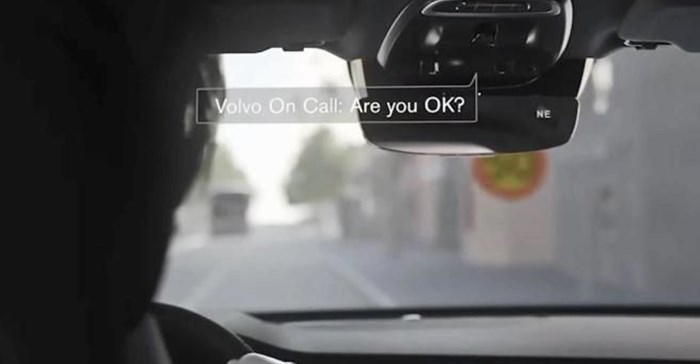
Top stories






AutomotiveHilux Custom Builds offers purpose-built solutions for your business
Toyota South Africa Motors 16 Feb 2026
More news

Marketing & Media
Ads are coming to AI. Does that really have to be such a bad thing?
















While this technology is currently unavailable, Volvo Cars is working on installing in-car cameras and other sensors that will monitor the driver and allow the car to intervene if a clearly intoxicated driver does not respond to warning signals and could cause an accident involving serious injury or death.
Intervention could involve limiting the car’s speed, alerting the Volvo on Call assistance service and, as a final course of action, actively slowing down and safely parking the car, says Greg Maruszewski, managing director of Volvo Car South Africa.
He explains that the cameras will monitor behaviour that could lead to serious injury or death. “Examples of such behaviour include a complete lack of steering input for extended periods of time, drivers who are detected to have their eyes closed or off the road for extended periods of time, as well as extreme weaving across lanes or excessively slow reaction times."
While these in-car cameras will be rolled out globally, they are especially good news for South African road users. According to Arrive Alive, drunk driving is one of the biggest threats to road safety in South Africa. Research indicates that a whopping 50% of people who die on the roads have a blood alcohol concentration above the legal blood alcohol content limit of 0.05 gram per 100 millilitres.
The World Health Organisation (WHO) concurs that the situation in South Africa is dire. In its 2018 Global Status Report On Road Safety, the WHO says that 58% of all road accidents in South Africa involve alcohol. It goes on to state that road traffic injury is now the leading global cause of death for people aged between five and 29 years.
Trent Victor, Professor of Driver Behaviour at Volvo Cars, agrees that drinking and driving is a massive problem. “There are many accidents that occur as a result of intoxicated drivers. Some people still believe that they can drive after having had a drink, and that this will not affect their capabilities. We want to ensure that people are not put in danger as a result of intoxication,” he explains.
Maruszewski believes that the in-car cameras – which will be introduced in vehicles built on the next generation of Volvo’s scalable SPA2 vehicle platform in the early 2020s – will go a long way towards addressing this problem. “Simply put, this technology will translate into fewer drunk drivers on South African roads, which can only be a good thing,” he notes. The cameras are but one safety initiative that is being rolled out by Volvo Cars.
The company is also working towards avoiding accidents via two other important initiatives: with effect from model year 2021, Volvo Cars will limit the top speed on all its cars to 180 km/h. “This will send a strong signal about the dangers of speeding,” concludes Maruszewski.
